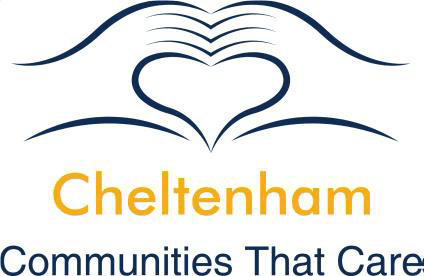
The Cheltenham Communities That Care (CTC) coalition, based in Pennsylvania, aims to organize and mobilize the community to reduce the risk factors that contribute to youth violence and substance abuse.
Cheltenham CTC focuses on the communities that comprise Cheltenham Township in Montgomery County and the West Oak Lane community of Philadelphia, Pennsylvania. Cheltenham CTC is governed by a collaborative community board of residents, social service agencies, law enforcement, school district officials, faith-based organizations, and youth.
“Cheltenham CTC was established in October 2013 in response to increasing needs and concerns for the youth in Cheltenham Township,” said Angela Bell, Esquire, Community Mobilizer. “Cheltenham CTC is proud that we are responding to four identified risk factors that can lead youth in Cheltenham/West Oak Lane to engage in problem behaviors through a series of programmatic strategies to assist schools and families in enhancing protective factors that promote positive behavior, well-being and personal success.”
The coalition has implemented effective, successful projects such as a partnership with the Cheltenham Township police department, including aggressive drug enforcement details and targeting drug activity in areas youth frequent to obtain and/or use illicit drugs. Underage drinking enforcement included enforcement of underage drinking laws and investigative time on hosts, suppliers or purchasers of alcohol for underage youth through source investigations and shoulder tap enforcement.
Additionally, the coalition implemented substance use prevention campaigns and initiatives, including:
- Say It Straight – A national model program designed to teach youth the skills necessary to effectively say “no” to situations that put them at risk.
- Social Marketing Campaigns – campaigns like “Find Your 25th Hour” and “Parents Who Host, Lose the Most” are implemented to increase environmental change and awareness regarding important issues impacting youth.
- Sticker Shock – Partnership with local alcohol distributors to raise community awareness of the penalties associated with purchasing or providing alcohol to minors.
- Responsible Alcohol Management Program (RAMP) – Training for alcohol-serving establishments on how to identify underage individuals and prevent dangerous drinking.
- Positive Action – Evidence-based program that promotes an intrinsic interest in learning and encourages cooperation among students in grades k – six.
- Youth Subcommittee – Leadership development and pro-social opportunities for youth to strengthen their community.
- Parent Education – programs like Guiding Good Choices and Strengthening Families offer guidance to parents in navigating youth through pre-adolescent and adolescent developmental stages as well as strategies for parenting problems and communication skills.
“Cheltenham CTC provided the Responsible Alcohol Management Program (RAMP) to licensees in Cheltenham Township and West Oak Lane in collaboration with the Pennsylvania Liquor Control Board (PLCB). This program helps owners and servers in establishments serving alcohol to better identify underage patrons and prevent them from purchasing alcohol,” said Bell. “Sticker Shock is a tested technique to raise community awareness of the penalties and problems associated with purchasing or providing alcohol to anyone under 21 years of age. In partnership with local beverage distributors, members of the Cheltenham CTC youth subcommittee placed stickers on cases of alcohol informing adults of the penalties for furnishing alcohol to minors.”
The outcomes were significant. Data from the community’s 2015 survey found that 24 percent of 10th graders and 40 percent of 12th graders used alcohol in the past 30 days. In 2017, after implementing prevention strategies, 30-day alcohol use decreased to 13 percent amongst 10th graders and 28 percent amongst 12th graders.
“Our advice for other coalitions addressing similar issues would be to start with making sure that you have the right key leaders involved in the coalition,” said Bell. “Educate yourself about the community and the issues that youth and families are facing. Listen to youth and adolescents regarding their perspective on issues on problem behaviors and effective strategies.”


